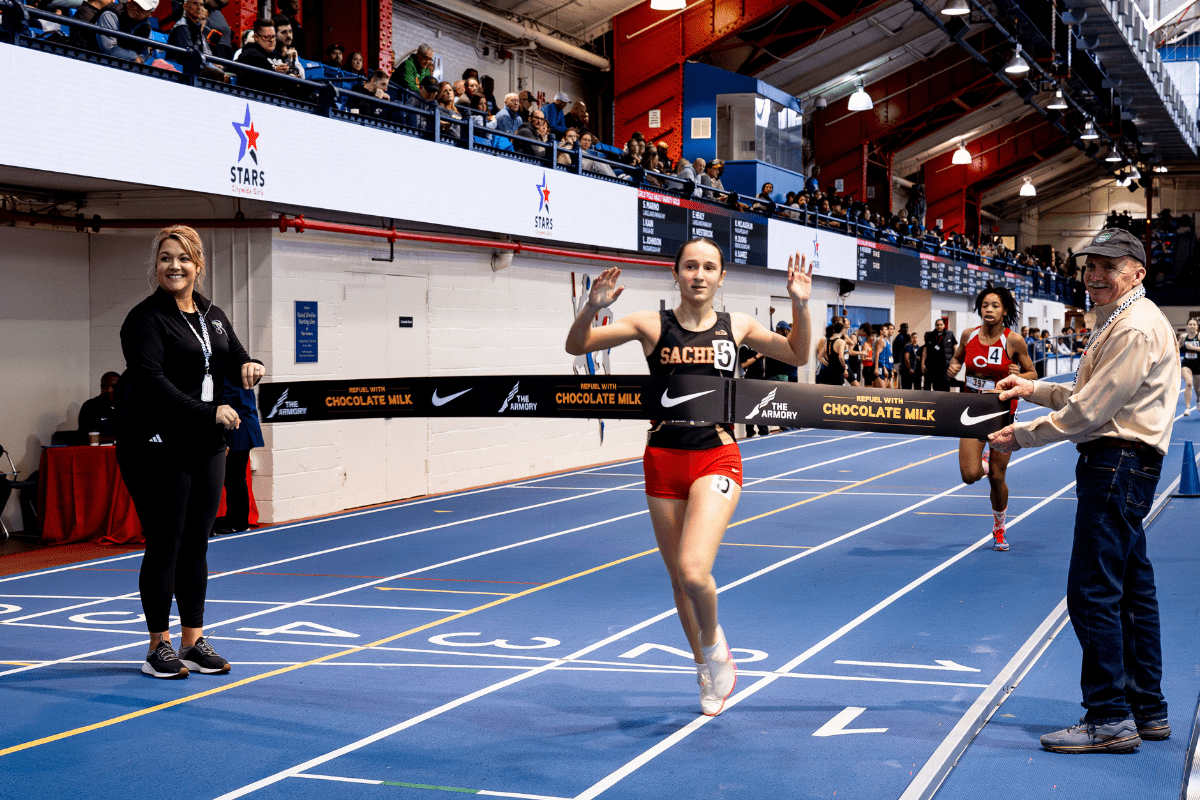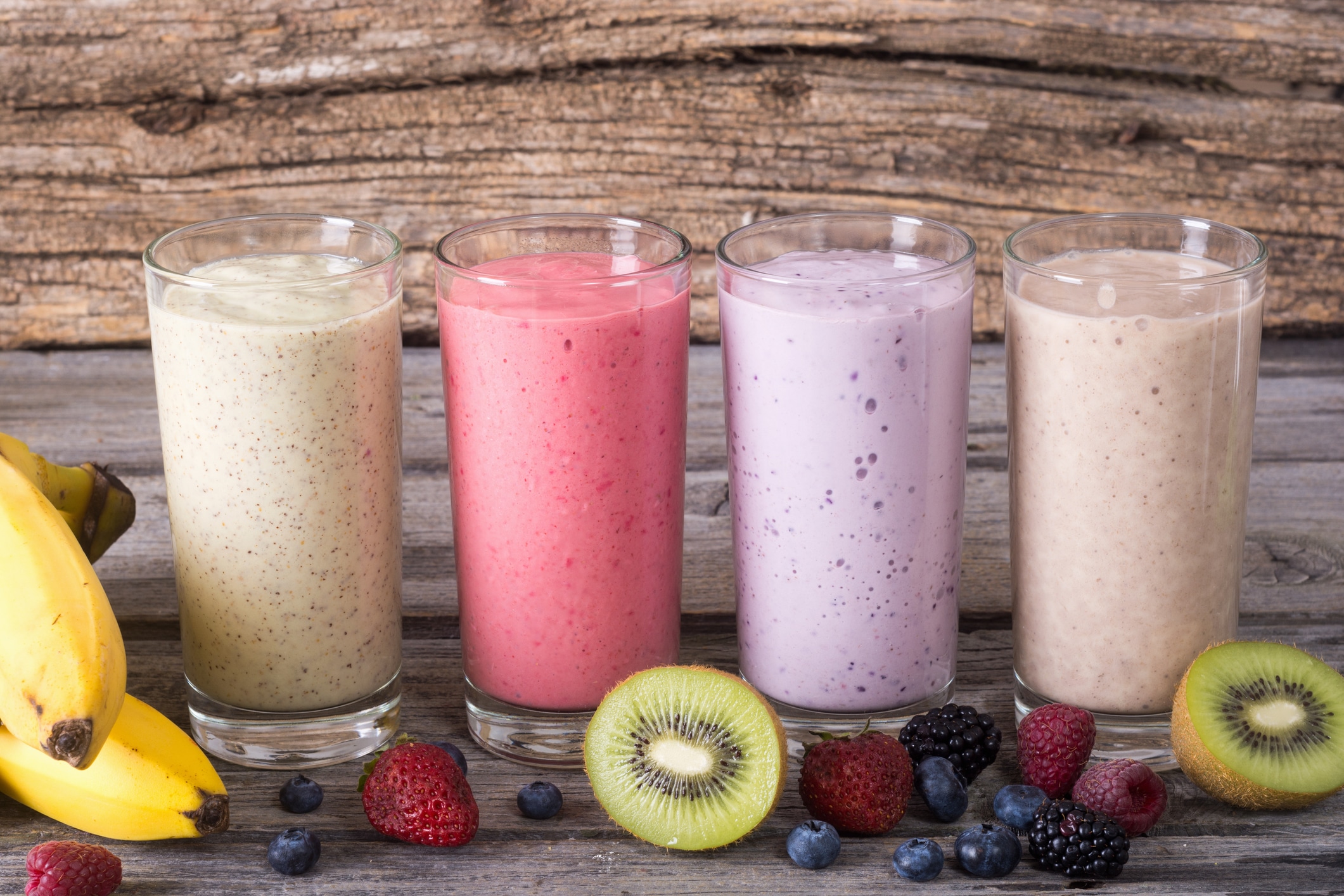Track & field is a sport consisting of various running, throwing and jumping events. Some athletes participate in one or more track events, such as the 100-meter dash, 3200-meter run or 1600-meter relay, while others participate in one or more field events, such as long jump, pole vault, shot put or discus. Some athletes may participate in both track and field events.
Successful track & field athletes train for power, speed, strength, and endurance. Their specific training plan depends on the event or events in which he or she participates. Solid nutrition and hydration habits are needed to support the intense training during the pre-season and competition season, and to help build and maintain strength during the off-season.
Nutrition Recommendations for Track and Field
Due to the demanding training required by track & field athletes, daily energy expenditure is generally high. Therefore, more calories are needed each day to keep up with training and recovery. Unfortunately, reported intakes are often less than estimated needs. That puts track & field athletes at a higher risk of low energy availability, which can negatively impact sports performance. To make sure athletes get adequate energy, they need to consume adequate carbohydrate, protein and fat at each meal and have snacks throughout the day.
Carbohydrate
Carbohydrate is the preferred source of energy for the muscles and brain, making it an important component of a student athlete’s diet. The amount of carbohydrate consumed will vary depending on what phase of training the athlete is in, pre-season, competition, or off-season.
Both track and field athletes should be consuming between 5 and 7 grams of carbohydrates per kilogram of body weight each day. For a 165-pound (75 kg) athlete, that equates to between 375-525 grams of carbohydrates spread throughout each day. The range takes in account the different events as well as each phase of an athlete’s season.
Pre-season is when training demands are the highest. Therefore, athletes should focus on getting the higher end of their carbohydrate needs to perform and properly recover. While some training typically continues in the off or rest season, the intensity and duration is generally lower, allowing athletes to shift to the lower end of their carbohydrate needs. It is important to understand that carbohydrates are important during all phases of the season. Carbohydrates are found in a wide variety of foods, including grains, fruits, vegetables, milk, yogurt, beans, and simple sugars.
Protein
Protein is a key component of a track & field athlete’s diet. Consuming adequate protein is critical for a number of body functions, including repairing and building muscle tissue. The recommended intake for both track & field athletes is between 1.2-1.7 grams per kilogram of body weight each day. For a 165-pound (75 kg) athlete, this would be 90-128 grams per day spread evenly throughout meals and snacks.
When choosing protein sources, variety and quality is important. Aim to eat a variety of high-quality protein foods, such as dairy, like milk, yogurt, and cheese, as well as eggs, lean beef, poultry, fish, legumes, and beans. Relying heavily on protein bars and shakes can put athletes at risk of missing key nutrients.
Fat
Fat has a variety of roles in the body, one of them being a source of fuel for athletes. While carbohydrates are the main source of fuel for track & field athletes, fat is also a valuable energy resource. Many track & field athletes fail to get adequate fat in their diet, which can also lead to low-energy availability and long-term health concerns. Because track athletes tend to be more at risk of low body fat than field athletes, it is especially important for them to consume at least 1 gram of fat per kilogram of body weight each day. For a 165-pound (75 kg) athlete, that is a minimum of 75 grams of fat each day.
While eating enough fat is important, an emphasis is placed on including heart-healthy fats. A few examples include avocados, nuts, nut butters, seeds, and olives.
Below is an example of how much carbohydrate, protein and fat a 165-pound (75 kg) track and field athlete would need, and how they can spread their intake throughout the day.
Daily Nutritional Requirements for Track & Field
| Based on a 165 lb. Student Athlete (75 kg) | ||||
| Carbohydrate | Protein | Fat | ||
| Daily Requirements | 5-7 g/kg/d | (1.2-1.7 g/kg/d) | Remainder of calories to meet daily energy requirement | |
| Daily Total | 375- 525 g | 90-128 g | Varies based on daily calorie requirement | |
| Per Meal (3 Meals/Day) | 90- 135 g | 20-30 g | ~20-30 grams | |
| Per Snack (3 Snacks/Day) | 30-45 g | 15-20 g | Minimum of 10 grams | |
Source: Sports Nutrition: A Handbook for Professionals
Fueling and Hydrating Before, During and After Training and Competition
Having a fueling, hydration, and rehydration plan that supports the energy demands of practice and training is key to having high-quality training sessions. That includes what you eat and drink before, during, and after practice, as well as how you eat and hydrate on competition days.
Before
The size and composition of the pre-practice or pre-competition meal is highly dependent on how much time there is before activity starts. Ideally, athletes should eat a nutritious, balanced meal that is high in complex carbohydrates, moderate in protein and includes some dietary fat three to four hours before the event starts. Then, have a smaller snack made up of simple carbohydrates that digest more rapidly in the 30-60 minutes before competing. Check out our handout on fueling for competition day for ideas ad examples on what to eat before activity,
During
Fueling and hydrating during high school track & field events isn’t practical since most events last under a minute. Even longer events, like the 3200-meter run, are not long enough to warrant an athlete slowing down for fluids. Instead, they should focus on starting well-fueled and hydrated, and refueling and rehydrating immediately after the event.
Fueling and hydrating during practice and training, however, is a different story. For practices lasting longer than an hour, or when practice or training takes place in hot and humid conditions, regular fluid breaks are critically important to maintain a healthy hydration status. In addition to drinking water or a sports drink, athletes can help maintain energy levels by consuming a carbohydrate-rich snacks during quick breaks or rest periods. Sports chews, a piece of fresh fruit or a granola bar are all easy, portable options to consider.
After
Eating and drinking after training and competition is important to replace depleted muscle fuel and replace lost fluids. The post-practice meal or snack should include carbohydrates to refill the body’s energy stores and protein to help repair muscle tissue. Drinking chocolate milk after exhaustive activity is a great option because it supplies both carbohydrates and protein, as well as fluids and electrolytes, all in one beverage. That snack begins the refuel process, but athletes should still plan to have a balanced meal within two hours of ending activity.
Refueling and rehydrating after activity is especially important for athletes who participate in multiple events. High school track meets can last four hours or longer, so it’s also important to pack a meal and extra snacks to prevent hunger and maintain energy levels during the downtime.
Fluids
I can’t say enough about the importance of drinking adequate fluids. Establishing a hydration routine is critical to maintain adequate hydration status and to prevent dehydration. To help meet fluid needs, carry a large water bottle and sip fluids throughout the day. It’s especially important to focus on fluids in the hours leading up to practice. Eating foods that have a high water content, such as milk, yogurt, soups, fruits, and vegetables, also help meet daily fluid needs.
During practice, drink about 6 ounces of fluid every 15 to 20 minutes. Water is adequate for practices shorter than one hour. When practice is longer than one hour or when it is outside in hot and humid conditions, a sports drink that contains electrolytes is a better option. By paying attention to fluid losses, athletes can be sure to rehydrate appropriately. After activity, rehydrate by drinking 20 to 24 ounces of water and/or an electrolyte beverage for every pound of weight lost during practice.
Other Sports Specific Considerations
Traveling for competition and long meet days can make it challenging to stick to a regular eating and fueling routine. Plan and pack portable, shelf-stable healthy snacks for long bus trips. Some ideas include dried fruit and nut trail mix; peanut butter and jelly sandwiches; tuna fish pouches and crackers; whole fruit; granola bars; bottled juice and bottled water.





